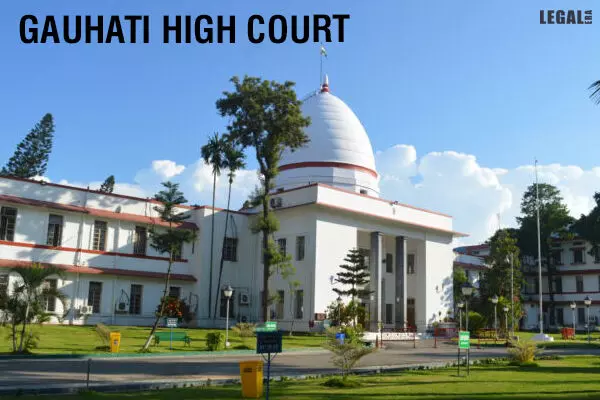- Home
- News
- Articles+
- Aerospace
- Artificial Intelligence
- Agriculture
- Alternate Dispute Resolution
- Arbitration & Mediation
- Banking and Finance
- Bankruptcy
- Book Review
- Bribery & Corruption
- Commercial Litigation
- Competition Law
- Conference Reports
- Consumer Products
- Contract
- Corporate Governance
- Corporate Law
- Covid-19
- Cryptocurrency
- Cybersecurity
- Data Protection
- Defence
- Digital Economy
- E-commerce
- Employment Law
- Energy and Natural Resources
- Entertainment and Sports Law
- Environmental Law
- Environmental, Social, and Governance
- Foreign Direct Investment
- Food and Beverage
- Gaming
- Health Care
- IBC Diaries
- In Focus
- Inclusion & Diversity
- Insurance Law
- Intellectual Property
- International Law
- IP & Tech Era
- Know the Law
- Labour Laws
- Law & Policy and Regulation
- Litigation
- Litigation Funding
- Manufacturing
- Mergers & Acquisitions
- NFTs
- Privacy
- Private Equity
- Project Finance
- Real Estate
- Risk and Compliance
- Student Corner
- Take On Board
- Tax
- Technology Media and Telecom
- Tributes
- Viewpoint
- Zoom In
- Law Firms
- In-House
- Rankings
- E-Magazine
- Legal Era TV
- Events
- Middle East
- Africa
- News
- Articles
- Aerospace
- Artificial Intelligence
- Agriculture
- Alternate Dispute Resolution
- Arbitration & Mediation
- Banking and Finance
- Bankruptcy
- Book Review
- Bribery & Corruption
- Commercial Litigation
- Competition Law
- Conference Reports
- Consumer Products
- Contract
- Corporate Governance
- Corporate Law
- Covid-19
- Cryptocurrency
- Cybersecurity
- Data Protection
- Defence
- Digital Economy
- E-commerce
- Employment Law
- Energy and Natural Resources
- Entertainment and Sports Law
- Environmental Law
- Environmental, Social, and Governance
- Foreign Direct Investment
- Food and Beverage
- Gaming
- Health Care
- IBC Diaries
- In Focus
- Inclusion & Diversity
- Insurance Law
- Intellectual Property
- International Law
- IP & Tech Era
- Know the Law
- Labour Laws
- Law & Policy and Regulation
- Litigation
- Litigation Funding
- Manufacturing
- Mergers & Acquisitions
- NFTs
- Privacy
- Private Equity
- Project Finance
- Real Estate
- Risk and Compliance
- Student Corner
- Take On Board
- Tax
- Technology Media and Telecom
- Tributes
- Viewpoint
- Zoom In
- Law Firms
- In-House
- Rankings
- E-Magazine
- Legal Era TV
- Events
- Middle East
- Africa
Gauhati High Court: In Absence of Evidence to Show Claimant was a 'Gratuitous Passenger,' the Insurer Cannot Claim Exemption

Gauhati High Court: In Absence of Evidence to Show Claimant was a 'Gratuitous Passenger,' the Insurer Cannot Claim Exemption
The Gauhati High Court, while hearing an appeal filed in the matter of New India Assurance Co. Ltd. vs. Karuna Barman and others ruled that it is impossible for an insurer to claim exemption if no evidence is available to demonstrate that the claimant was a 'gratuitous passenger.'
The factual matrix of the case is that on 6th March, 2004, while the claimant/injured was travelling in a truck, the driver of the vehicle lost control and knocked one stationary vehicle and one electric pole. The claimant sustained serious injuries on his left upper limb. Ultimately, the left upper limb of the injured had to be amputated. The injured filed a claim case for seeking compensation.
The appellant/Insurance Company contested the claim case before the Tribunal by filing written statement. The claimant examined three witnesses. The appellant/insurance company examined two witnesses. Finally, on conclusion of hearing, the Tribunal awarded a sum of Rs.3,31,000/- as compensation.
The only ground of appeal was that the claimant was a gratuitous passenger and therefore he is not entitled to get any compensation.
The claimant pleaded that he was the second driver of the vehicle and was sitting inside the driver's cabin while the other driver was driving the vehicle. There was no evidence to substantiate in this case that the claimant was a gratuitous passenger.
The single judge Justice Parthivjyoti Saikia observed, "the Motor Vehicles Act, 1988 does not define the expression 'gratuitous passenger'. However, Section 147(1)(b)(ii) of the Act expressly exempts the case of a 'gratuitous passenger' in a goods vehicle in a public place. But gratuitous passenger would mean one who has taken lift."
The Court remarked that there was that the insurer cannot claim exemption if he does not have any evidence to support the proposition that the claimant was a gratuitous passenger.
"The appellant/insurance company realized premium for five employees. The insurance policy does not stipulate the nature of employment of the employees covered by the policy. Therefore, the claimant is not a gratuitous passenger," ruled the Court.
Thus, the in the light of above findings, the Court deemed that the appeal was devoid of merit and dismissed accordingly.



